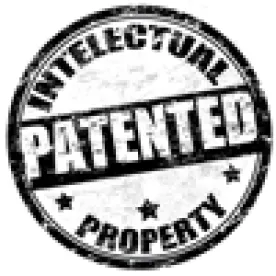Finding that a district court had not provided procedural due process to an attorney for a sanctioned party, and that the district court abused its discretion in imposing sanctions for civil contempt against the attorney, the U.S. Court of Appeals for the Fifth Circuit vacated sanctions imposed against an attorney that had properly asserted a privilege defense and affirmatively had taken steps to remedy unknowingly false prior misstatements of fact to the district court. Waste Management of Washington, Inc. v. Kattler et al., Case No. 13-20356 (5th Cir., Jan. 14, 2015) (Owen, J.).
At the district court, an employer, Waste Management of Washington (WM), sued a former employee, Dean Kattler, for alleged violation of an employment agreement by accepting a job with a competing company. Shortly after the suit was filed, the district court issued a temporary restraining order instructing Kattler to produce two classes of discovery—Kattler’s personal electronic devices and forensic images of devices either provided by Kattler’s new employer or used by Kattler while at his new employer. Shortly thereafter, the district court issued a preliminary injunction and ordered Kattler to produce all devices to WM within two days that had not been given to Kattler by the new employer. The new order did not account for the fact that Kattler’s attorney, Moore, had asserted concerns about breaches of the attorney-client privilege that would result in complying with the expanded order. At the same time, the attorney also denied the existence of a certain thumb drive to WM based on representations made by his client, Kattler.
About one month later, the plaintiff moved for a show-cause hearing as to why Kattler should not be held in contempt for failure to produce a personal iPad device. Moore again raised privilege concerns in response to produce the iPad device, which the court acknowledged, but ordered that the device should be produced anyway. At that time, Moore represented to the court that the thumb drive did not exist. The court did not issue sanctions at that time. After the hearing, Kattler informed Moore that the thumb drive did exist, which prompted Moore to consult with a professional responsibility expert and withdraw from representing Kattler within the week. Kattler soon produced a declaration describing the existence of the thumb drive.
Kattler’s new attorney produced an image of the iPad device, but not the device itself, and the relevant information regarding which Kattler asserted attorney-client privilege had been electronically blocked. WM again moved for a show-cause hearing for sanctions for failure to produce the iPad device itself. The district court’s notice of hearing in response to that motion referred to the docket entry ordering the previous show-cause hearing, which named only Kattler as the potential contemnor, not Moore. At the second hearing, the court found both Kattler and Moore in contempt for failure to produce either the iPad device or a viable image of the device, and for misleading the court about the existence of the thumb drive. Moore appealed.
Finding that Moore’s alleged contempt did not occur inside the courtroom, the 5th Circuit held that adequate notice of a charge of contempt was due to Moore, and that due to the form of the notice simply referring back to the first hearing identifying only Kattler, Moore did not receive such notice. The 5th Circuit also found that the district court abused its discretion in issuing a contempt order as to the thumb drive because Moore had been misled by his own client about the existence of the drive, thereby creating an inability to comply with the court’s order, and Moore had taken immediate remedial measures to rectify the misstatement. The 5th Circuit also found that Moore’s previous good-faith claim of attorney-client privilege could serve as a valid defense to the finding of contempt as to the forensic image of the iPad. Finally, the 5th Circuit excused Moore from contempt as to production of the iPad device itself to ambiguity in previous orders about its production. The 5th Circuit found that the lack of production was excusable given the ambiguity and that the assertion of privilege would protect the device itself and compelling production would require Moore to violate the attorney-client privilege.



 />i
/>i

